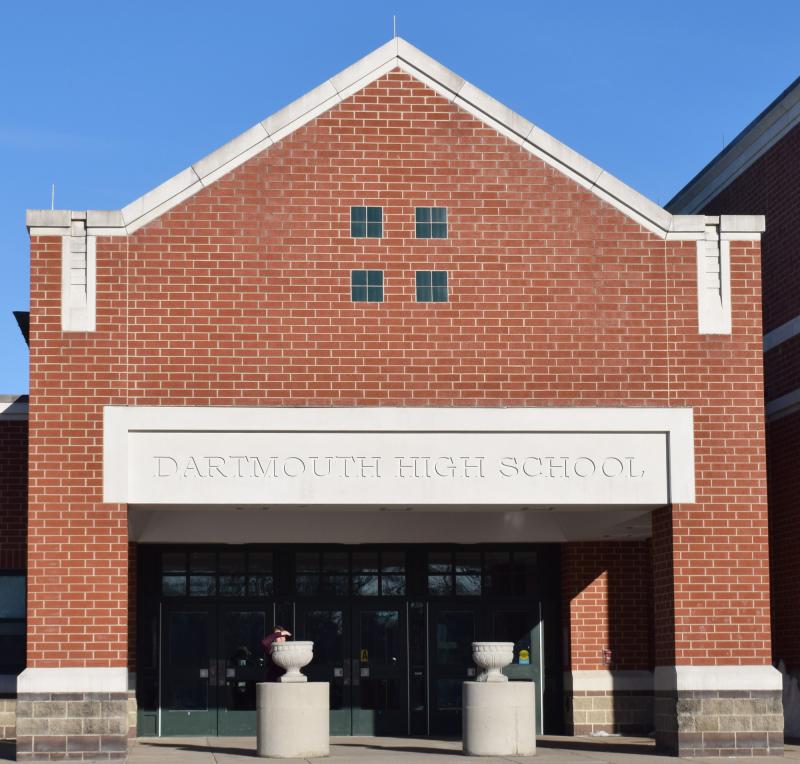Dartmouth High administrators plan to move away from final exams
Instead of hours-long final exams, Dartmouth High School students could be making podcasts or giving oral presentations to demonstrate the skills gained through a high school class.
Principal Ross Thibault plans to launch “summative learning experiences” at the high school in place of traditional final exams. As part of the plan, the School Committee approved his request to remove all references to “final exams” from the high school handbook at its Jan. 28 meeting.
Thibault said the new experiences will better reflect growing research against traditional final exams.
“The traditional cumulative final exams, which were multiple choice and designed to be two hours long, just didn’t provide the type of information that is indicative of what students learn and what they’re able to do with the instruction they receive,” Thibault said.
Since the fall of 2017, he has been working with school administrators and faculty to develop the learning experience model. Thibault consulted with teachers who also teach at UMass Dartmouth, and Dartmouth High grads who are now in college about how the final exam experience in higher education differs. He learned many college classes no longer offer final exams, including English classes.
“It was pretty indicative that [final exams] are not as common as they were when even I was a college student,” Thibault said.
Each department is being asked to identify a new project or experience designed to be 50 minutes in length instead of two hour ordeals which could replace final exams.
Some ideas already brainstorming include a final paper in English classes synthesizing multiple points of view from multiple texts, a final research paper and presentation for history classes, and special final labs in science classes designed to tie elements of the course together.
“We’ll be meeting tomorrow to flesh out what the summative learning experiences will look like in each department,” Thibault said. “It’ll be a blend of some exams, but more projects. We have to be strategic in how we map this out.”
Thibault noted the change does not preclude the use of final exams in classes that one might make the most sense such as certain mathematics classes, although they will be much shorter.
School Committee members approved the proposal.
Shannon Jenkins noted the old language rigidly required final exams even in classes one might not make sense. Carol Karafotis noted some of the ideas suggested at the meeting, like oral presentations, reflect what students will have to do when they are in the workforce.













